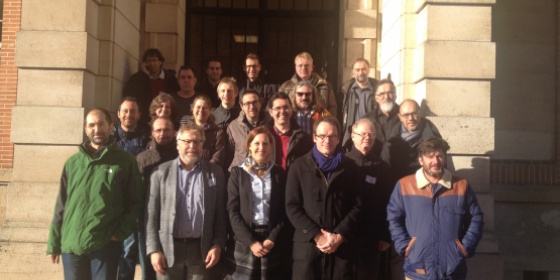
This EU-funded project was aimed to enhance capabilities of the ICOS RI GHG monitoring
ICOS-INWIRE has been an EU-funded FP7 project to enhance capabilities of the ICOS research infrastructure (ICOS RI) for greenhouse gas monitoring. It comprised important technical developments to improve the performance of ICOS RI and activities to better connect ICOS RI to its operational users and to global partners in GHG observations and modelling. The latter was done with a particular focus on the European Earth observation programme COPERNICUS in-situ services.
The final ICOS-INWIRE results were presented to the scientific advisory board and discussed at the final project meeting in Paris from 14-15th January 2016. ICOS ERIC Director General Werner Kutsch thanked all contributors to the ICOS INWIRE project as well as project coordinators Nadine Schneider and Jean-Daniel Paris for their important contribution to ICOS RI. He stated different levels of ICOS-INWIRE impact - some immediate and some which will develop over the next few years.
One of the examples for immediate impact of this project on ICOS RI would be a technical work on data processing enabled through ICOS-INWIRE. This work improved the technical ability to quickly process data coming from the ICOS stations and provide them to a growing community that need “near real time” (NRT) information for continuously running models. Data streams like that have dramatically improved the weather forecast in the past 20 years and the GHG community is aiming to do so in the future.
This needs well organized data streams from ICOS RI to data users – ideally harmonized with other regional infrastructures in a global system. Building these cooperation and develop the readiness of ICOS RI to connect to global systems has been a second important effort of ICOS INWIRE. The strong cooperation with COPERNICUS in this context was welcomed from both sides.
The project has also inspired the overall strategic discussion within the ICOS RI. After becoming an ERIC at the end of last year, ICOS has now to find its place in the global landscape of GHG observations. ICOS-INWIRE project supported this process and its impact will persist in the coming years.
For more in depth information on the ICOS-INWIRE project go to: http://www.icos-inwire.lsce.ipsl.fr/